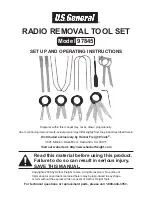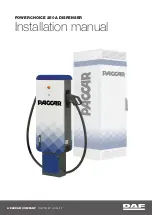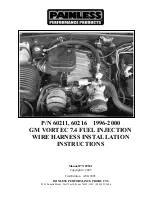
9. Attach the tether strap (if the child seat is equipped). Refer to
Attaching child safety seats with tether straps
later in this chapter.
10. Before placing the child in the
seat, forcibly move the seat forward
and back to make sure the seat is
securely held in place. To check
this, grab the seat at the belt path
and attempt to move it side to side
and forward and back. There should
be no more than 1 inch (2.5 cm) of
movement for proper installation.
Ford recommends checking with a NHTSA Certified Child Passenger
Safety Technician (CPST) to make certain the child restraint is properly
installed. In Canada, check with your local St. John Ambulance office for
referral to a CPST.
Installing child safety seats in the lap belt seating positions
WARNING:
Installing a child safety seat in the front row lap
seating position should be avoided if at all possible.
WARNING:
Never place a rear-facing child seat in the front
center seating position of a vehicle with rear seating positions.
WARNING:
Front seating positions only: If seating two adults
and a child, Ford recommends properly restraining the child in
the center front seating position, but only if doing so will not interfere
with driving the vehicle. This arrangement provides lap and shoulder
belt and airbag protection for adult occupants and an attachment
method for a child restraint. If the child seat interferes with driving the
vehicle and the child restraint is forward-facing, the child may be
restrained in the passenger seat. Move the seat as far rearward as
possible to minimize the likelihood of interaction with the front
passenger airbag. Never place a rear-facing child seat in front of an
active airbag. All occupants of the vehicle should always properly wear
their safety belts. Ensure the child is properly restrained in an
appropriate child seat or with the use of a booster.
Seating and Safety Restraints
132
2010 Crown Victoria
(cro)
Owners Guide, 2nd Printing
USA
(fus)
















































